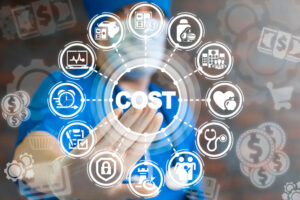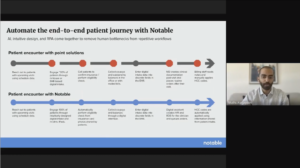Denial Management
This comes as no surprise to anyone in the industry: The COVID-19 pandemic did a number on the healthcare economy, ravaging volumes, revenues, and other financial metrics. We may be on our way to recovery, however. Kaufman Hall’s latest Hospital Flash Report paints an optimistic picture, reporting increases across hospital volumes, revenues, and margins last month compared…
Read MoreIn case you missed it, over the past month, we have published incredible content on our OrboNation Blog and Modernizing Omnichannel Check Fraud Detection. Review the latest OrboNation Newsletter online or via PDF download.
Read MoreRevCycleIntelligence reports on a new survey that shows about three-quarters of hospitals and health systems in the US deployed revenue cycle management (RCM) technology or underwent active technology deployments during the COVID-19 pandemic. The survey polled over 350 CFOs and revenue cycle leaders at hospitals and health systems between December 17, 2020, and Feb 5, 2021, using…
Read MoreAlready picking up steam pre-pandemic, healthcare consumerism has been hastened by the COVID-19 crisis. RevCycle Intelligence spoke to Kathy LeBrew, chief system revenue cycle officer at University Hospitals in Ohio, about how best to address this new state of the industry. “We need to recognize what’s important to the patient as a consumer, caring about…
Read MoreIt’s no secret to anyone who’s read previous posts here that artificial intelligence (AI) and machine learning are a boon for revenue cycle management — probably one of the strongest use cases for this type of technology, in fact, as reported by RevCycle Intelligence. “Integrating artificial intelligence into an RCM solution allows us to have data driven approaches to automate each step in the process, whether it’s when that first letter is going out, that first contact is happening, or that payment is going into a payment plan. Each step, there’s a model supporting that decision which helps a person to take the right action at the right time,” says Greg Allen, senior director of data science and product management at Ontario Systems.
Read MoreStanford University’s 2021 AI Index Report is now available, and it goes into significant detail regarding Computer Vision, which is integral to the sorts of recognition tasks important in fraud detection and EOB processing.
Read MoreHindsight is 20/20, but it turns out that many medical practices and providers didn’t put into motion much digital preparation pre-pandemic, and that places them in a current payments predicament. This is according to Colin Mellon, senior vice president of Healthcare and Insurance Solutions at Fiserv. During a PYMNTS TV Trend Talk, Mellon noted that “the pandemic…
Read MoreFor healthcare providers, the decision of whether to handle revenue cycle management internally vs. outsourcing the function is not something be taken lightly. While there are pros and cons for each choice, the COVID-19 pandemic has complicated the decision even further. Medical Economics features an in-depth conversation with Anurag Mehta, president and co-founder of Omega Healthcare, about various impacts of COVID and how medical practices should adapt and rise to the challenge.
Read MoreEarlier this week Dr. Bob Wachter, the Chair of Medicine at UCSF and author of New York Times bestseller The Digital Doctor: Hope, Hype and Harm at the Dawn of Medicine’s Computer Age, shared a discussion with Dr. Muthu Alagappan, Medical Director at , to explore tested strategies for using AI and automation to get the most out of your EHR data and, as a result, thrive in the post-EHR era. A recording of the discussion can be viewed here.
Read MoreBrandon Sim, the chief technology officer and chief operating officer at, a tech-powered healthcare management company, says the time to fully implement artificial intelligence and machine learning is now. From Healthcare Finance: “Especially because recent CMS regulations are going to force electronic health record companies to share their data in a more reasonably accessible fashion,” Sim said. “Just the sheer amount of data that is being collected – the rise of alternative sources of data like remote patient monitoring and wearable devices – make it a very natural fit for using machine learning and AI methods in healthcare.”
Read More








